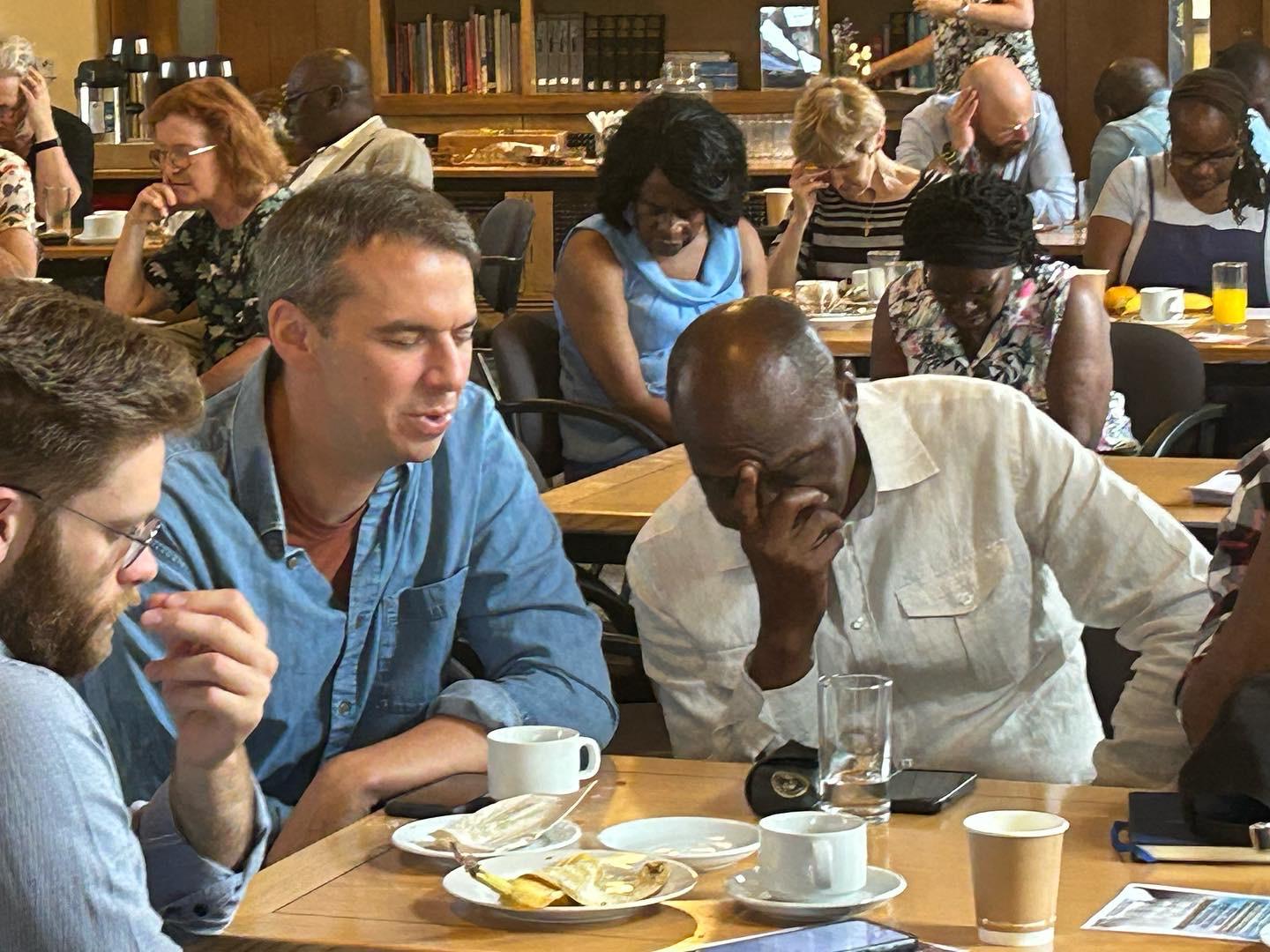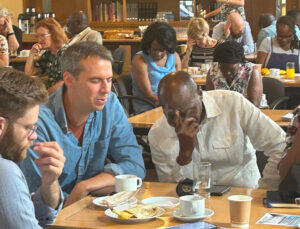
Acts 1:8 “But you will receive power when the Holy Spirit comes on you; and you will be my witnesses in Jerusalem, and in all Judea and Samaria, and to the ends of the earth.”
8 reasons why and how borough unity networks are an optimal expression of church collaboration and worthy of a dedicated percentage of your time and resources as a Kingdom leader.
- It’s a bite sized chunk of the population of London. Two of our steering group recently attended a city reaching summit attended by cohorts of leaders from across 8 towns and cities the Uk. In the introduction I was asked the population of Southwark and when I stated the figure of 330,000, many of the city unity leaders responded ‘well that’s bigger than our city’. Successful unity networks have been growing in towns and cities as churches recognise the common good they can achieve in serving and reaching their communities with the gospel. Whether the borough is your Jerusalem, your Judea, your Samaria or your ends of the Earth, it is worthy of a dedicated percentage of your time as a Kingdom leader.
- Borough collaborations make sense for effective Civic engagement. Boroughs are a city sized piece of London for good reason. As civic administration evolved in 1965 each borough was intended to have a population (then) of around 200,000 and to include diverse neighbourhoods, which explains why so many are so long and thin, and run north/south, and so include the industrial areas near the Thames as well as ‘leafy suburbs’. This means that both richer and poorer church communities can collaborate in a solidarity for the common good. Injustices and inequalities can be addressed at a civic level as required, and so a unity borough network is prudent. This has proved true and fruitful on a number of occasions in the past.
- Meaningful and effective partnerships can be formed across a diverse cross section of the church community within the common bond of the gospel. The history of SfJ has demonstrated that through the coming together of diverse churches across the borough has led to fruitful mission and effective social action. Sometimes these are local community project collaborations such as PECAN (Peckham Evangelical Churches Action Network) or borough wide collaborations such as Street Pastors, which TS oversees, Charities generally require support from a wider network than just a village or a portion of a borough.
- Supportive borough leadership relationships generate a healthy tribe that keeps vision and leader health at a stronger level. Leadership is lonely. There has been a long standing fellowship of senior leaders in a strong network of relationships across Southwark for more than 30 years and many have attested to the benefit and support that they have experienced from their peers, particularly in seasons of hardship and pressure. Over the years deep friendships have formed across denominational, cultural and social tribes that have become a well of Kingdom blessing.
- United prayer Of course prayer needs to happen at every expression of unity. However borough wide prayer is the equivalent of ‘the watchmen on the walls’ as we pray for our city, for its protection, for its peace and for the prospering of the Gospel. A healthy rhythm of prayer at a borough leadership level is a vital foundation for the blessing of every church and community.
- Deeper Discipleship. This happens when the churches in a city or a borough collaborate to build a Kingdom culture that understands the importance of personal and community growth in devotion to Jesus and to his Kingdom, above and beyond denominational loyalty. Collaboration among regional churches to see discipleship strengthened and individuals transformed leads to the blessing of all the churches and to the transformation of the city / borough.
- Leadership development. Borough unity networks are an ideal environment for leadership development. Drawing on the gifts and experience available across the church, leadership pipelines can be developed to train and serve local charities, businesses, and churches with discipleship, missional and entrepreneurial training. Larger churches can benefit smaller churches and resources can be shared. This has taken many forms in the past with worship leaders, preachers and youth leaders being shared, serving and launching kingdom projects across the region.
- Church multiplication Healthy unity makes room for a multiplication mindset. Research into new church communities and new churches being planted should form a part of healthy collaboration. CP unusually happens from within denominations but unity within a region, providing resources and support for pioneers and planters is a key ingredient. A Gospel Saturation goal for Southwark might be to see at least I church per 1000 of the population in ten years time. If there are an estimated 200 churches currently in Southwark (?!) and half of them were to plant another church in the next 10 years then the goal would be reached. This is an illustrative goal and the objective may come about in a number of ways, but the point is, gospel saturation is achievable and not so far beyond our reach if we collaborate.
We look forward to all that God will do as we collaborate in our common calling to see Gospel Saturation and a Transformed Southwark Borough.






Leave a Reply
You must be logged in to post a comment.